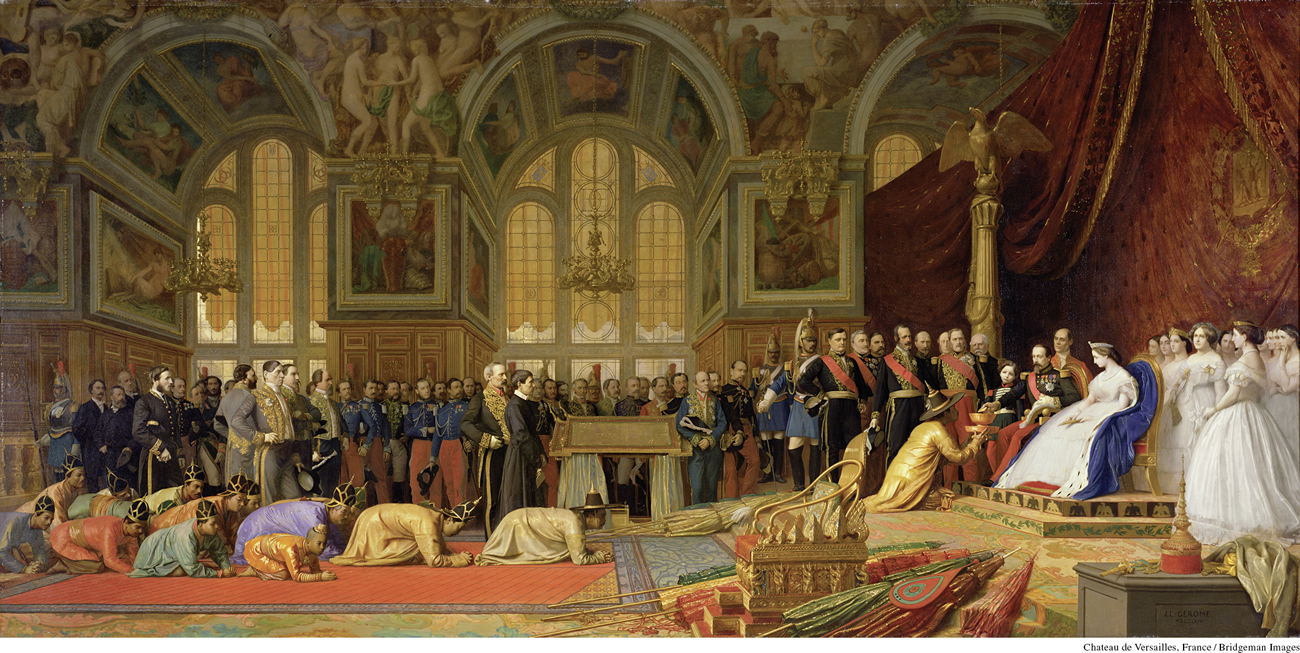Napoleon III and the Quest for French Glory
Napoleon III and the Quest for French Glory
Louis-Napoleon Bonaparte, who declared himself Napoleon III in 1852, encouraged the cult of his famous uncle as part of nation building, showing Europe’s leaders how to combine economic liberalism and nationalism with authoritarian rule. He claimed to represent people’s “families, your property—rich and poor alike,” but he closed cafés where men might discuss politics and established a rubber-stamp legislature, the Corps législatif, that made representative government a charade. Napoleon’s opulent court dazzled the public, while his wife, Empress Eugénie, followed middle-class norms by playing up her domestic role as devoted mother to her only son and supporting many charities. The authoritarian, apparently old-fashioned order imposed by Napoleon showed that the radicalism of 1848 was under control.
Napoleon III was nonetheless a modernizer. He promoted a strong economy and public works programs that provided jobs. The magnificent rebuilding of Paris made France prosper as Europe recovered from the hard times of the late 1840s. Empress Eugénie wore lavish gowns, encouraging French silk production. The regime also reached a free-trade agreement with Britain and backed the establishment of innovative investment banks. Railway mileage increased fivefold during Napoleon III’s reign. During the economic downturn of the late 1850s, he wooed support by allowing working-class organizations to form and introducing features of democratic government.

On the international scene, Napoleon III’s main goals were to overcome the containment of France imposed by the Congress of Vienna and to acquire international glory like a true Bonaparte. To reshape European politics in France’s favor, Napoleon pitted France first against Russia in the Crimean War and then against Austria in the War of Italian Unification (1860–1861). Napoleon also looked beyond Europe. In Algeria and Southeast Asia, his army struggled to enforce French rule. In Mexico, he attempted to install Maximilian, the brother of Habsburg emperor Francis Joseph, as emperor. In Egypt, he successfully encouraged the construction of the Suez Canal to connect the Mediterranean and the Red Sea. Overall, his foreign policy broke down the international order established at the Congress of Vienna.